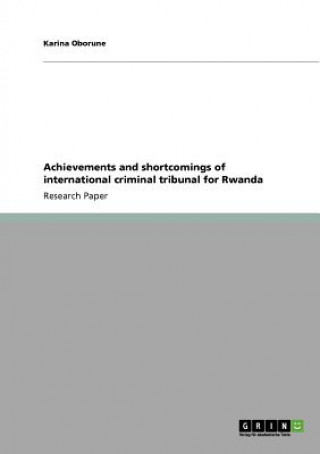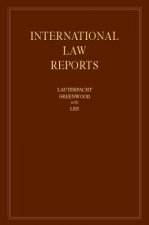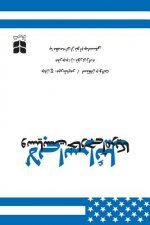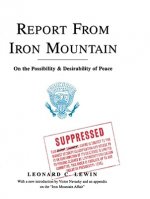
Kód: 01638876
Achievements and shortcomings of international criminal tribunal for Rwanda
Autor Karina Oborune
Research Paper from the year 2009 in the subject Politics - International Politics - Topic: Peace and Conflict Studies, Security, printed single-sided, grade: A-, University of Basel (Europainstitut), course: Friedensförderungssem ... celý popis
- Jazyk:
 Angličtina
Angličtina - Väzba: Brožovaná
- Počet strán: 56
Nakladateľ: Grin Publishing, 2010
- Viac informácií o knihe

Mohlo by sa vám tiež páčiť
-

International Law Reports
171.42 € -14 % -

Kleidung und Identitat
72.28 € -

Herr Adamson
11.17 € -

Der Babylonische Talmud, 12 Bde.
300.10 € -4 % -

Vergnugungen Der Angelsachsen
44.18 €
Darujte túto knihu ešte dnes
- Objednajte knihu a vyberte Zaslať ako darček.
- Obratom obdržíte darovací poukaz na knihu, ktorý môžete ihneď odovzdať obdarovanému.
- Knihu zašleme na adresu obdarovaného, o nič sa nestaráte.
Viac informácií o knihe Achievements and shortcomings of international criminal tribunal for Rwanda
Nákupom získate 109 bodov
 Anotácia knihy
Anotácia knihy
Research Paper from the year 2009 in the subject Politics - International Politics - Topic: Peace and Conflict Studies, Security, printed single-sided, grade: A-, University of Basel (Europainstitut), course: Friedensförderungsseminar, language: English, abstract: ABSTRACT§Aim of paper§This paper deals with the effectiveness and achievements of ICTR that can be viewed in light of aims set out in the UN Resolution 955, 1994. In the Resolution UN is determined to: 1) have effective application and enforcement of restrictions against the warfare perpetrators; 2) bring justice and ensure that violations are halted; 3) have fair trials; 4) contribute to criminal justice and process of reconciliation and restoration and maintenance of peace.§Hypotheses§In the present paper author put forward two hypotheses. The first hypothesis is that creation of ICTR was a logical, but moderate step, which would have not been necessary if global society would have appropriately reacted to previous warnings about possible genocide in Rwanda. The second hypothesis is that ICTR was merely a vehicle of justice, but it is hardly designed as a vehicle for reconciliation.§Analytical framework§Author has discussed the work of ICTR and refer to particular aims, possibility of their achievement and assess outcomes. Author used three tools of analytical framework: legal, political and economical, as from these different standing points it is possible to assess the work of ICTR in its entirety. Legal aspects of work of ICTR extend from mere procedural points to ICTR s contribution to legal tradition and legal developments. Author depicted which of legal aspects have undermined the authority and image of ICTR, as well as could be deemed as actual shortcomings, and how these aspects influence achievement of justice as the ultimate goal of legal authority. Financial aspect shows the costs of ICTR, but political aspect deals with assessment of set goals in the Resolution and bringing justice as a prerogative, as it is expected to be effective and appropriate.§Main conclusions§The paper shows that while making a significant contribution to the law of genocide and international criminal justice and establishing historical record (achievements), ICTR was incapable in reconciliation of witnesses and survivors and was described as job creation for foreigners (shortcomings).
 Parametre knihy
Parametre knihy
Zaradenie knihy Knihy po anglicky Society & social sciences Politics & government
44.18 €
- Celý názov: Achievements and shortcomings of international criminal tribunal for Rwanda
- Autor: Karina Oborune
- Jazyk:
 Angličtina
Angličtina - Väzba: Brožovaná
- Počet strán: 56
- EAN: 9783640762316
- ISBN: 3640762312
- ID: 01638876
- Nakladateľ: Grin Publishing
- Hmotnosť: 86 g
- Rozmery: 210 × 148 × 3 mm
- Dátum vydania: 28. November 2010
Obľúbené z iného súdka
-

Case Against the Sexual Revolution
16.91 € -21 % -

Wretched of the Earth
10.65 € -18 % -

The Trigger
25.32 € -19 % -

State and Revolution
5.32 € -13 % -

Accidental Superpower
18.45 € -19 % -

My Autobiography
13.22 € -18 % -

Fight Like A Girl
12.29 € -15 % -

Against Civilization
16.60 € -4 % -

Abaddon Ascending: The Ancient Conspiracy at the Center of CERN's Most Secretive Mission
28.19 € -

The Lords of Poverty: The Power, Prestige, and Corruption of the International Aid Business
13.93 € -19 % -

Politics
52.69 € -5 % -

Cold and the Dark
20.19 € -13 % -

Voices from the Contemporary Japanese Feminist Movement
57 € -

Calculus of Consent
17.11 € -

Mafia Monograph, Part 1 of 4
22.55 € -

Israel Lobby and U. S. Foreign Policy
28.80 € -7 % -

Harm Reduction or Harm Maintenance
33.01 € -

Entropy Of Capitalism
47.36 € -

Red Petrograd
23.57 € -

Troubled Constitutional Future
28.70 € -

Lineages of Modernity - A History of Humanity from the Stone Age to Homo Americanus
46.85 € -

City of Quartz
15.98 € -15 % -

Inventing Vietnam
32.49 € -29 % -

Flash Boys - A Wall Street Revolt
12.91 € -

Lee Kuan Yew
19.88 € -15 % -

Giants
19.98 € -13 % -

Children of the Matrix
18.34 € -15 % -

Queer Encounters with Communist Power
25.83 € -

Identity
11.37 € -24 % -

Deep State
16.19 € -21 % -

Next Decade
17.93 € -2 % -

Return of Marco Polo's World
15.27 € -19 % -

Force of Reason
21.01 € -2 % -

STRANGE DEATH OF EUROPE
20.19 € -6 % -

Political Science For Dummies
19.37 € -20 % -

Yoga of Eating
12.40 € -19 % -

Political Brain
15.37 € -21 % -

GREEN BOOK
7.88 € -23 % -

Politics: A Very Short Introduction
10.14 € -23 % -

Out of the Wreckage
20.91 € -20 % -

No Turning Back
12.29 € -23 % -

Urban Warfare in the Twenty-First Century
28.70 € -

Trade Marketing, Category Management, and Shopper Marketing
95.45 € -

Spirit of the Laws
23.88 € -

USAF Military Working Dog Program - Scholar's Choice Edition
30.75 € -

Psychology of Politics
23.37 € -

Report From Iron Mountain
15.57 € -

Lies My Teacher Told Me
22.85 € -19 % -

Liberalism and Its Critics
33.42 € -10 %
Osobný odber Bratislava a 2642 dalších
Copyright ©2008-24 najlacnejsie-knihy.sk Všetky práva vyhradenéSúkromieCookies



 21 miliónov titulov
21 miliónov titulov Vrátenie do mesiaca
Vrátenie do mesiaca 02/210 210 99 (8-15.30h)
02/210 210 99 (8-15.30h)